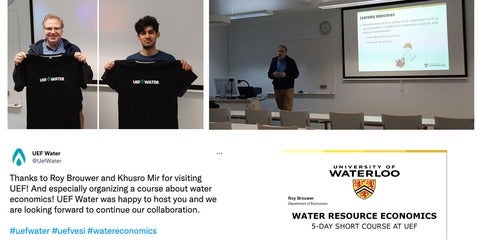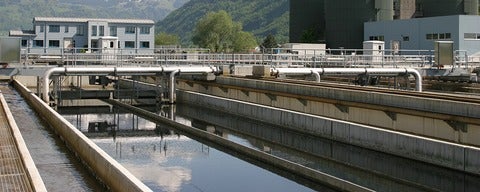Quebec municipalities want their water sources protected — and industry to pay more
Roy Brouwer, the executive director of the Water Institute and a professor of economics says although Canada has an abundance of water, there is a threat of water insecurity because it's not just the quantity, it's also the quality. (CBC)








